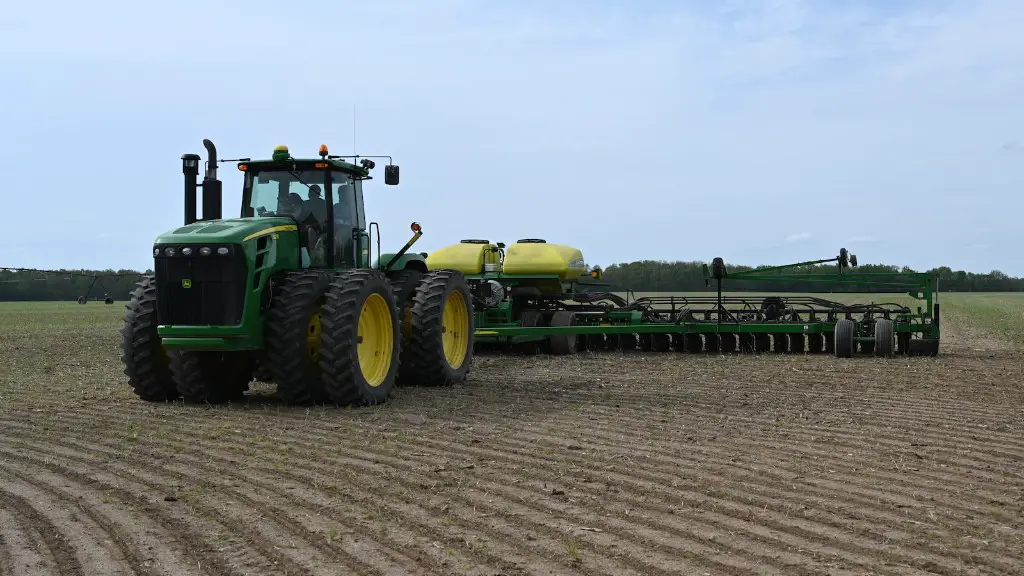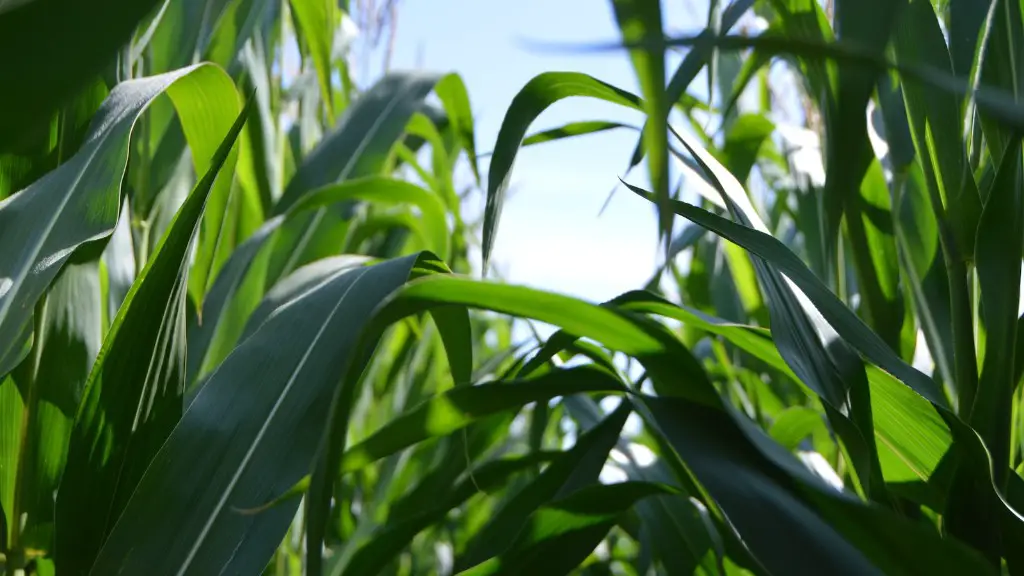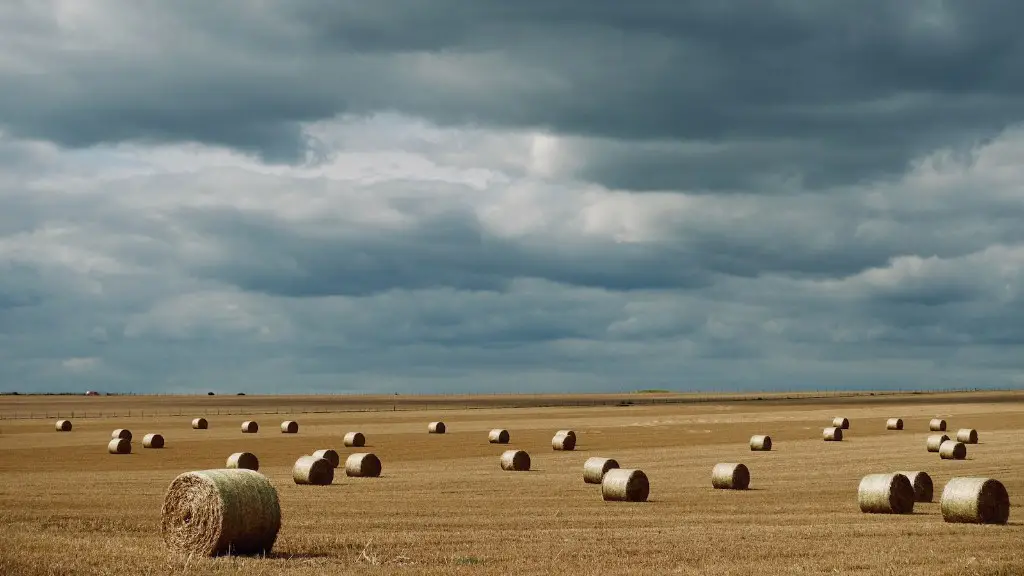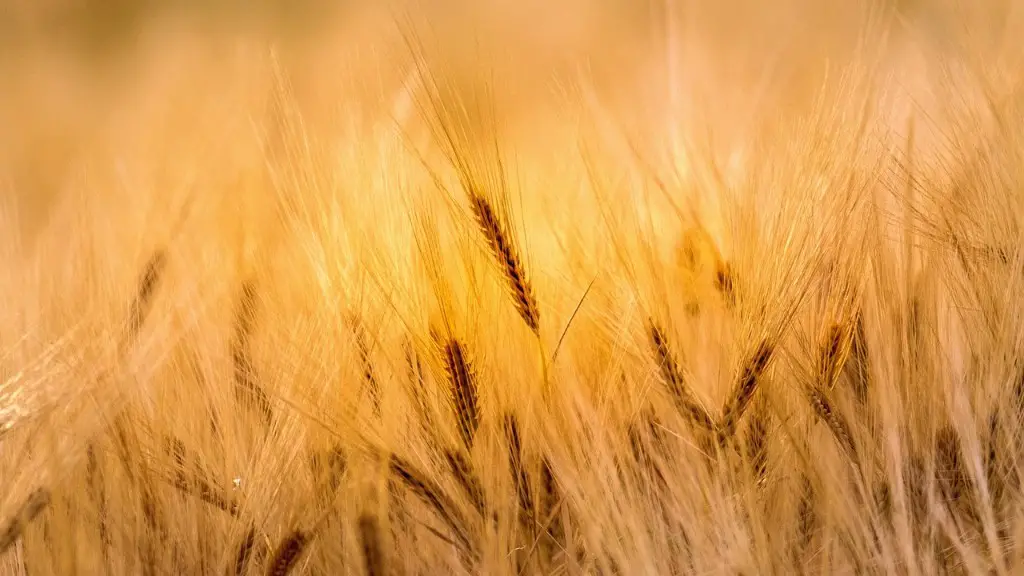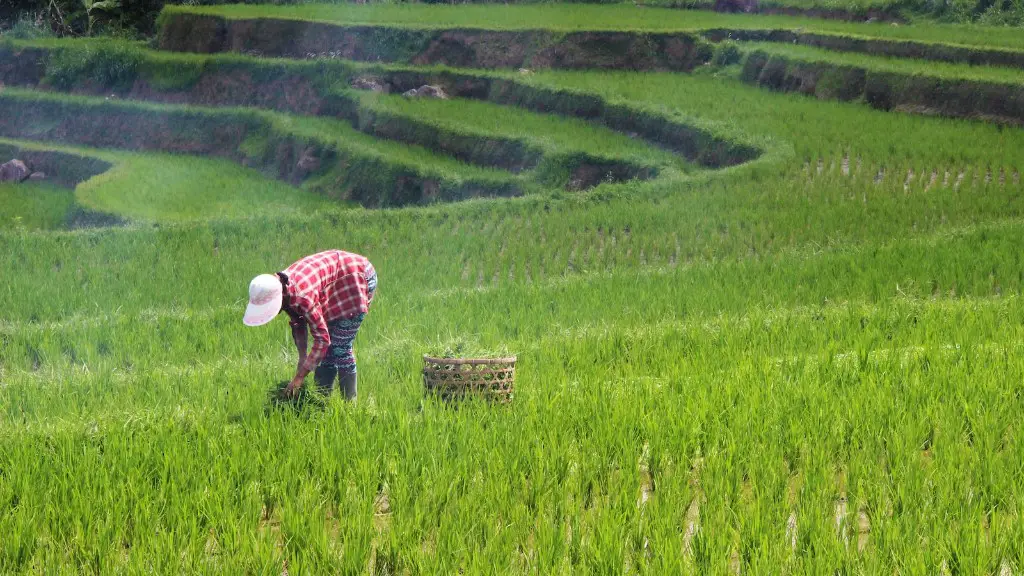An agriculture degree can open the door to many different career paths. The most obvious option is to work in the agricultural industry, but there are many other opportunities available as well. With an agriculture degree, you could work as a food scientist, a agricultural consultant, or a farm manager. You could also use your skills to help with environmental conservation efforts or to teach others about sustainable farming practices. The possibilities are endless!
There are a few different options for someone with an agriculture degree. They could become a farmers, work in a nursery, work for a company that produces agricultural products, or they could even teach agriculture at a school.
What can an agriculture degree be used for?
An agronomist is a professional who works in the field of agriculture, helping farmers to grow crops and manage their land. They may work for banks, farm co-ops, or crop management companies, and are often hired as consultants by farmers or by companies that sell seed, fertilizer, and agrichemical products. Some agronomists may also work as forecasters, environmentalists, analysts, or teachers. To be an agronomist, you should have an interest in science and a bachelor’s degree.
There are a variety of high-paying jobs in agriculture, from Agricultural Engineer to Agricultural Sales Representative. Agricultural Engineer designs machines and equipment to be used on farms, while Agricultural Food Scientists develop new ways to grow and process food. Veterinarians provide care for farm animals, and Winemakers create and oversee the production of wine. Farm Managers oversee the daily operations of a farm, and Agricultural Sales Representatives sell farm products to buyers.
What are the 7 career pathways in agriculture
The career pathways in agriculture are divided into seven different areas: agribusiness, animal systems, environmental service systems, food products and processing systems, natural resources systems, plant systems, and power, structural, and technical systems. Each of these areas offers a different range of career opportunities and paths that you can take. If you’re interested in working in the agricultural industry, it’s important to explore all of the different career pathways that are available to you. That way, you can find the path that best suits your skills and interests.
The agricultural industry offers a wide variety of career opportunities for those with the right skills and knowledge. Agricultural engineers use their technical skills to develop new ways to improve the efficiency of agricultural production. Agricultural economists use their economic skills to study and analyze the market for agricultural products. Farm managers use their management skills to oversee the day-to-day operations of a farm. Soil and plant scientists use their scientific skills to study the interaction between plants and the soil. Conservation planners use their planning skills to develop plans for the conservation of natural resources. Commercial horticulturalists use their horticultural skills to produce and sell plants and flowers. Agricultural salespeople use their sales skills to sell agricultural products.
Is agriculture a good major?
If you’re considering a career in agriculture, pursuing a degree in agriculture can be a great way to set yourself up for success. While you don’t necessarily need a degree to get many jobs in the agricultural industry, having a degree can give you a leg up on the competition and open up other doors. If you’re passionate about agriculture and want to make a difference in the world, pursuing a degree in agriculture is a great way to do it!
This is a great job opportunity for a career in agriculture! The job is best suited for those who have a keen enthusiasm in the agricultural settings and want to apply their engineering knowledge in that field. This is a great chance to get your foot in the door of the agricultural industry and learn from some of the best in the business!
What are 5 career opportunities in agriculture?
A career in agriculture can be very rewarding. There are many different career opportunities available in this field, from agricultural extension to agricultural engineering to animal science. Agricultural extension workers help farmers to adopt new technologies and practices. Agricultural engineers develop new technologies to help improve agricultural production. Animal scientists conduct research on animals to improve their health and productivity. Agricultural economists conduct research on the economic impact of agricultural policies and practices. Crop scientists conduct research on crops to improve their yield and quality. Soil scientists conduct research on soil to improve its fertility and to help prevent soil erosion. Forestry scientists conduct research on trees and forests to help improve their health and productivity. Horticulturists conduct research on plants to improve their growth and yield.
Agriculture is a great opportunity for someone to earn an income, whether on a large or small scale. There are also many career options in agriculture. With the world always changing, there are now different ways to earn from agriculture without owning a farm or even being physically present on the farm.
What are the fastest growing careers in agriculture
A career in agriculture, food, or natural resources can be very rewarding. There are many job options available in this field, and the projected job growth is very positive. Animal caretakers, pest control workers, refuse and recyclable material collectors, and agricultural equipment operators are just a few of the fastest-growing careers in this field. With the right education and training, you can have a successful career in agriculture, food, or natural resources.
An agricultural science degree program covers a wide range of topics related to food production, animal husbandry, and farming. You can expect to take courses in food science, animal science, crop science, and soil science. Many programs also include coursework in business and economics, as well as in the liberal arts.
What are the 12 types of agriculture?
There are many different types of farms, each with its own distinct purpose and method of operation. Here are 15 different types of farms:
1. Aquaculture Farming: A method of farming that involves the cultivation of aquatic plants and animals in controlled environments.
2. Cooperative Farming: A type of farming in which a group of farmers work together to pool their resources and make decisions collectively.
3. Hay Farming: A type of farming that involves the cultivation of hay, a type of grass that is dried and used for animal fodder.
4. Organic Farming: A type of farming that abstains from the use of synthetic pesticides and fertilizers, instead relying on natural methods to promote crop growth.
5. Urban Farming: A type of farming that is conducted in an urban environment, often making use of vacant lots or rooftops.
6. Nomadic Farming: A type of farming that follows a migratory pattern, moving to different locations in search of pasture or farmland.
7. Sedentary Farming: A type of farming that is based in one location, often utilizing intensive methods to maximize production.
8. Intensive Farming: A type of farming that uses large amounts of land, labor, and
There are a number of different branches of agriculture, each with its own focus and area of expertise. Agronomy, for example, is concerned with the science of soil management and crop production, while horticulture deals with the cultivation of fruit, vegetables, and ornamental plants. Plant breeding and genetics is focused on developing new varieties of plants that are better suited to specific conditions or that have improved characteristics, and seed science is concerned with the production, storage, and quality control of seeds. Crop-physiology is the study of how plants grow and respond to their environment, while plant pathology is focused on the identification and control of plant diseases. Soil science is focused on the study of soil fertility and management, and on the assessment of environmental impacts on soils.
Can you make good money in agriculture
A career in agriculture can be very rewarding, both financially and personally. The best agriculture jobs can pay up to $100,000 per year, and you can have the satisfaction of knowing that you are helping to feed the world. Agriculture science and engineering careers focus on soil, plant life cycles, irrigation, or farm machinery. You could also work in this industry as a livestock veterinarian. Whatever area you choose, you can be sure that you will be making a positive contribution to society.
There are many different types of jobs in agriculture, from farm workers and growers to grain elevator operators and agricultural equipment technicians. Purchasing agents and warehouse managers play an important role in the agriculture industry, and agriculture specialists may be involved in sales or marketing.
What are the disadvantages of agriculture?
While large-scale, conventional farming may yield high production levels, it also contributes to climate change, pollutes air and water, and depletes soil fertility. This system focuses on intensive single crop production, mechanization, and depends on fossil fuels, pesticides, antibiotics, and synthetic fertilizers.
Agriculture is a scientific and difficult course. Nobody appreciates the course like we do. Our subjects are not simply one plus one. We have so many laboratory subjects and hands on practicums.
Is agriculture is a tough to study
No, BSc Agriculture is not a tough course. The course is designed to give students a strong foundation in the basics of agriculture, including crop production, soil science, animal husbandry, and agricultural economics. It is a four-year program that can be completed in as little as two years if you have already completed your high school diploma or GED.
The agricultural sector in India is under immense pressure to increase crop yields in order to meet the needs of a growing population. However, this increased production is depleting water tables and soil health, and the effects of climate change are only making matters worse. It is a grim catch-22 situation that the sector faces in the coming decades.
Final Words
There are many things that someone with an agriculture degree can do. They can work on a farm, in a Garden Center, Greenhouse, or nursery. They can also work for the government in agricultural research or as a meat inspector. There are also opportunities to teach agriculture or work as an agricultural extension agent.
Overall, there are many paths that someone with an agriculture degree can take. There are many different types of jobs in the agricultural field, from working on a farm to working in a lab. There are also many different ways to use an agriculture degree, from teaching to research. No matter what someone’s interests are, there is a way to use an agriculture degree to pursue them.
